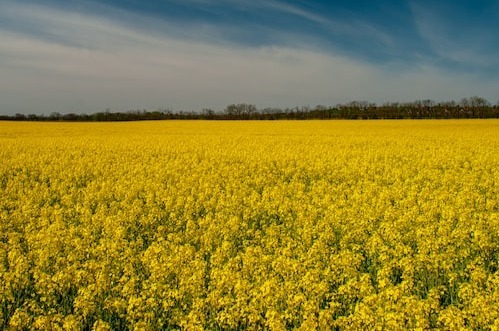W23: Canola & Rapeseed Update

In W23 in the canola landscape, the EC officially extended the EU ban on imports of wheat, corn, rapeseed, and sunflower from Ukraine until September 15 due to severe logistical bottlenecks and limited pre-harvest grain storage capacity in five Member States. Additionally, the scope of these measures will be further reduced from 17 to 6 tariff lines for the four products concerned. In the 2023/24 FY, Ukraine's duty-free trade regime with the EU will continue (until June 2024). However, Ukraine’s agricultural ministry considers it inappropriate to extend restrictions on Ukrainian food imports to some European states until September 15. Germany and Spain also sharply criticised the EC for the ban extension as Ukrainian imports could fill the grain shortage in Spain caused by the drought. Meanwhile, in Moldova, President Maia Sandu said that the government does not intend to give in to protesting farmers' demands for a ban on the export of wheat, maize, rapeseed, and sunflower seeds from Ukraine.
According to the May MARS report, the forecast of rapeseed yield in Europe in 2023/24 was raised to 3.34 t/ha from 3.31 t/ha in the April report and 3.33 t/ha in 2022. Rapeseed areas in Europe are increasing for the fourth year in a row. It is predicted that in 2023, France's rapeseed harvest will increase by 0.7% YoY, Germany by 5.4% YoY, Romania by 33.6% YoY, while Poland's harvest is expected to decrease by 7.7% YoY. The EU market will continue to require Ukrainian rapeseed regardless of the rise in yield since there is mutual interest between Ukraine and the EU in rapeseed trading. Ukrainian rapeseed exports underwent a substantial change in the 2022/23 season, with a significant increase in shipments to Poland and Romania while shipments to Germany, Belgium, and France declined. As the biggest European producers of rapeseed oil, these changes had little impact on the movement of commodities within Europe. However, carry-over rapeseed stocks for the 2023/24 season increased and are expected to double compared to the previous year and reach the highest level in the past four seasons.
The Australian ministry has reduced its prediction for winter agricultural output by 34% to 44.9 million mt in the 2023/24 crop year, below the 10-year average of 46.4 million mt in 2022/23. Canola production is anticipated to drop by 41% to 4.9 million mt, but it will still be 15% higher than the 10-year average. This is mainly due to the high chance that the rainfall in the farmland will be below average during June–August due to the possibility of an El Nino phenomenon, which will result in more dry weather. The spring sowing campaign in Russia is entering the final stage, with rapeseed sown on 1.5 million ha. Due to the warm weather, the 2023 spring planting season in Kursk, Russia began two weeks earlier than usual, and by June 5, the sowing of rapeseed was completed on 19.1 thousand ha or 75.2% of the planned area. Lastly, since the beginning of 2023, 2,626.8mt of rapeseed oil has been exported from the Kirov region in Russia to China.





